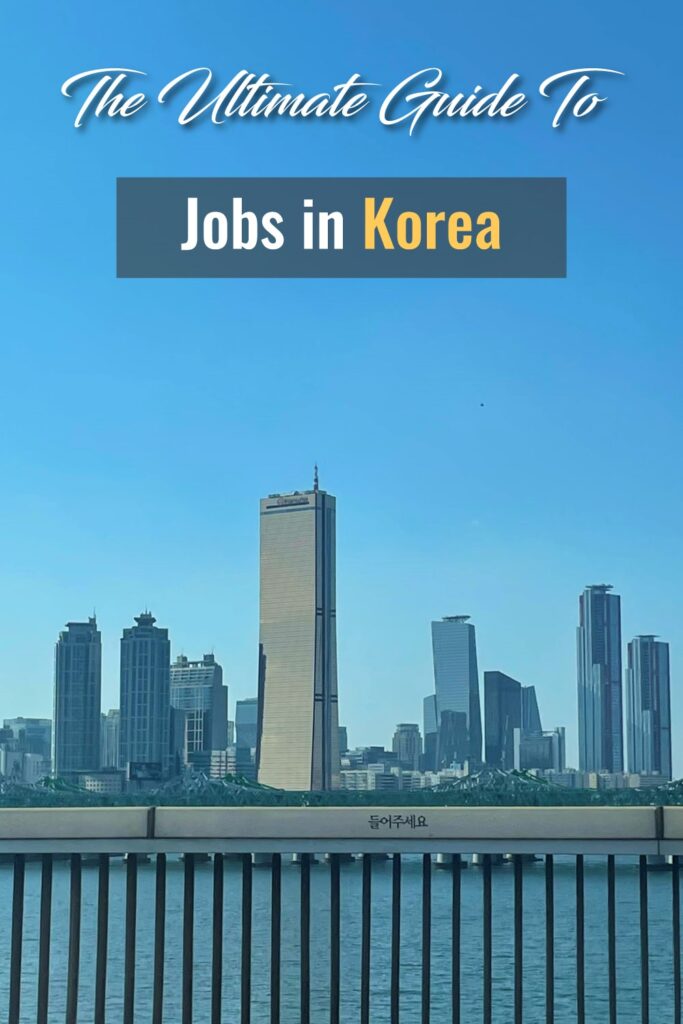
This post covers all you need to know about jobs in Korea for foreigners.
It includes:
- How to find your first job
- When to apply
- Which Visa to get
I got my first job in South Korea in 2006 and worked in 8 different industries. Here’s what I learned from my experience.
Essential Job Tips
- Apply in early Spring for the most job options.
- Get a copy of your employment contract in Korean and English, and check for penalty clauses.
- Get EVERYTHING in writing.
- Ask to see your housing before signing.
Listen to this Article
How to Get your First Job in South Korea as an Expat
Step 1. Make sure you have the right qualifications
To qualify for a basic work visa, you need:
- Passport
- Bachelor’s Degree
- Clean criminal record
- Health screening
Step 2. Find the right job online
Decide which city you want to live in and what kind of work you want to do.
Check the company’s reputation online. You can check some private English academies through Reddit or Dave’s ESL Cafe.
Step 3. Apply
Send all required documents including:
- Resume
- Picture
Be prepared to do a phone or video interview.
If you get the job, ask to see pictures of your housing.
Step 4. Get packed
Make sure to bring:
- Warm winter clothes
- Prescription medication in bulk
- Vitamins and pain relievers in bulk
- Melanin for light sleepers
- Unlocked phone
- Your favorite spices
- Power converter if you’re not coming from the EU (they use 220 volt plug C and F)
More about Moving to Korea and What to Pack


What are the benefits of working in Korea?
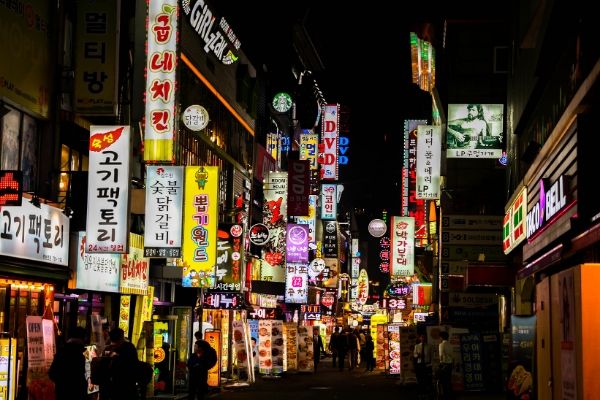
There are many benefits to working in Korea.
With its natural beauty, ultra-modern cities and vibrant expat community, Korea is a great place to relocate.
There are many opportunities for English-speakers that you won’t find at home.
It’s fun to live in Korea, especially in your twenties. There are enough neighborhoods with bars, clubs and restaurants to keep you busy for a decade.
In Fact:
You can have a high-standard of living in South Korea. Even for entry-level private academy jobs, the base salary is around 2 million KRW ($1,800) along with housing and insurance. This is enough to live comfortably and enjoy a variety of activities.
Korea has fast and convenient online shopping.
You can even save money in the process and spend it on travel in between contracts.
South Korea has an excellent healthcare system that will cost you about 100 USD a month.
You get paid one month’s salary for every year you work. This is known as 퇴직금 or severance pay.
Many jobs pay for your flight into the country and flight home after a year.
Korea has very effective disease control measures and takes pandemics seriously. Infection rates are relatively low given the dense population.
More about Traveling to Korea during the COVID-19 Pandemic
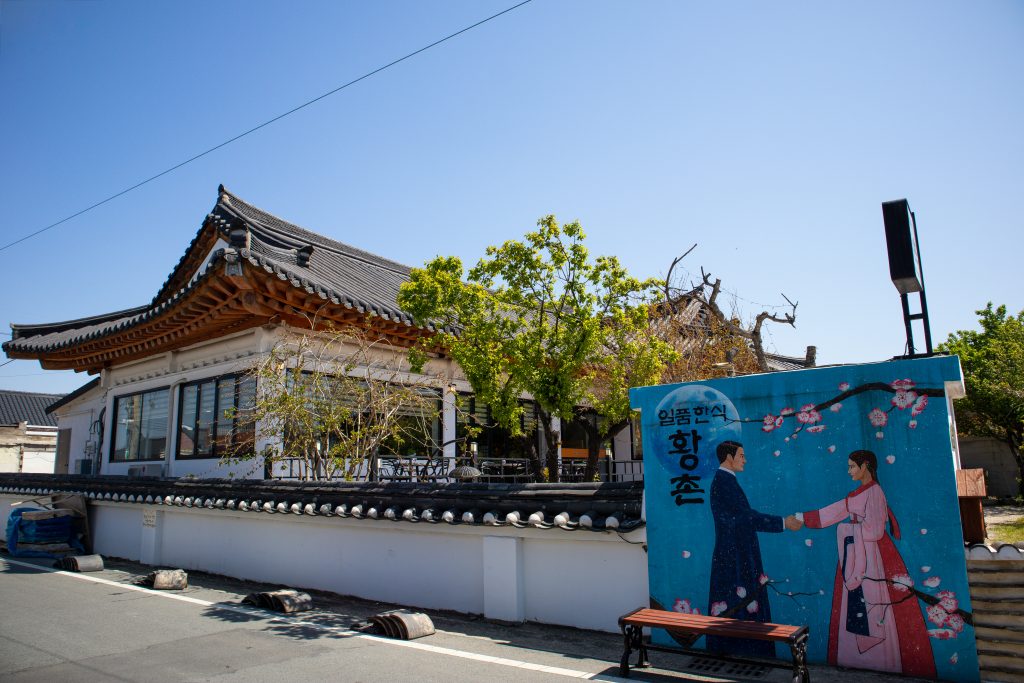
Korea has a rich and unique culture that’s fascinating to learn about.
The country has something for everyone. Whether you’re into nature, history, food, or K-dramas and K-pop, you’ll never get bored.
Korea has a relatively low crime rate for a developed country. It’s not uncommon for people to forget their laptops or wallets at a café and come back to find them untouched.
Violent crime is also very low, even in a densely-packed city like Seoul.
Education has been a priority in Korea for hundreds of years. Families can send their children to a range of international schools.
Korea has top universities as well. There are also ways to get your master’s degree for free at universities like Yonsei.
Seoul attracts expats from all over the world, so you’ll interact with a diverse group of people.
You won’t need a car in Seoul and most parts of the country.
Korea has a network of buses and a modern subway that can be accessed with one transportation card.
Since a round trip on public transport costs around 2 dollars, your transportation budget can be $50-100 dollars a month.
What are the drawbacks to working in Korea?

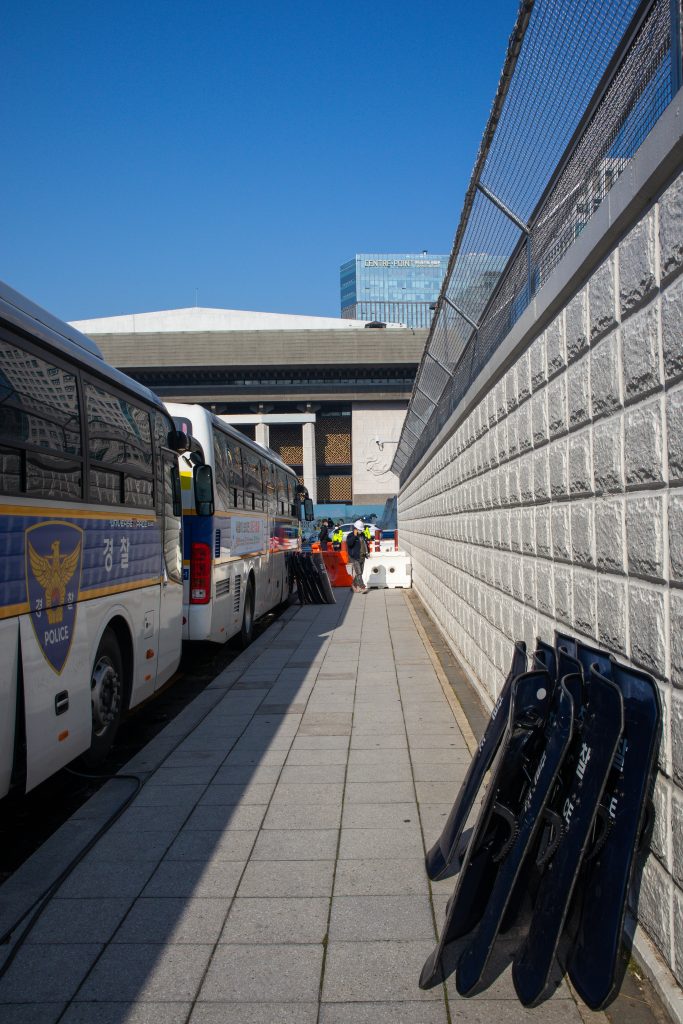
Life in Korea comes with many emotional peaks and valleys. There are times when it’s the best place in the world, and times when you wish you were elsewhere. It’s definitely not for the faint of heart. But, you’ll never know until you try.
Working hours can be long and you’re somewhat expected to stay longer (You can get away not doing this, but Koreans are pressured to stay until the boss leaves and sometimes even attend after-work gatherings).
More about Labor Rights in Korea
Harmony and relationships are often more important that merit and results. This is a positive for some.
Politics might be part of your job description whether you like it or not. (Having Nunchi or intuition helps!)
Traffic can be an issue during commuting times in Seoul and even Busan. It’s often quicker to take the subway. Make sure to check how far your place is from work.
Where can I find jobs in Korea?
English teaching jobs
Worknplay – A very active site with tons of English teaching jobs. They also have travel and study sections.
Englishspectrum – As you can imagine, this site specializes in jobs for English speakers in Korea. In addition to English teacher positions, there are also jobs in hostels where accommodation is included.
Seoul Professionals – Has mostly English teaching job opportunities.
Craigslist – While not the most reliable place to find a job, there are many English teacher and server positions of varying quality.
Dave’s ESL Cafe – An old standby that mainly consists of ESL jobs. The forums also contain a wealth of info on living in Korea.
More about Teaching English in Korea
Corporate jobs
LinkedIn – You probably have heard of this one. They have an army of recruiters and endless job opportunities. It’s a great place to network, especially given the global situation.
Robert Walters – A great place for corporate jobs in Korea.
Indeed – The newish kid on the block that’s growing rapidly. You can find all kinds of jobs here.
Glassdoor– A great place to find corporate jobs as well as info on what it’s like to work at each company. You can even research companies and compare salaries.
Seoul Global Center – A government organization created to help foreigners get jobs or start a business. They offer many free services in over 10 languages. Their help was instrumental in the success of my first business.
University Jobs
Higher Ed Jobs – Perfect for post doctorate graduates who want to find lecture and research opportunities.
Internships
The rules for internship employment have changed under the Moon Jae-in presidency. Now companies are required to pay a minimum of 1.8 million KRW a month and provide four kinds of insurance (4대보험).
Kopra – A place to find internships in Korea and other Asian countries.
Worknet – Is run by the Korea Employment Information Service and has some interesting job choices.
Volunteer Opportunities
Most volunteer abroad gigs are 18-25 hours a week, offer accommodation and some meals. It can be a bit tricky to know if you’re actually helping a non-profit or just providing indentured servitude. Make sure to check out the place thoroughly beforehand.
PSCORE – A non-religious organization that seeks to help unify the two Koreas.
Other Sources
Chambers of Commerce – Check the Chamber of Commerce of your country in Korea for job opportunities not found anywhere else. They’re often looking for highly qualified applicants.
Korean company websites – Some Korean companies actually seek talent overseas and will have a page on their website where expats can search for jobs. So if you have a place in mind, make sure to check out their site to see if they’re hiring.
Which visa do I need to work in Korea?
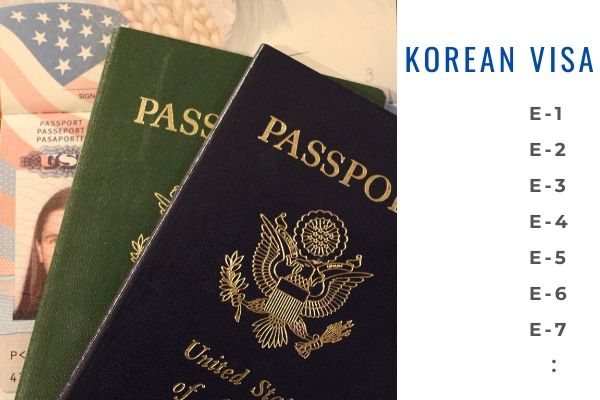
Fortunately, there’s a visa for practically everyone who wants to work in Korea. The two main types of visas fall under “sponsored” or “non-sponsored” categories. Visas rules change every year, so check this website to find the latest requirements.
Here’s a list of the most common work visas. If you can’t find what you’re looking for here, you can go to The Ministry of Foreign Affairs website to see the complete list.
Tourist Visas
Most visitors to Korea receive a 90-day tourist visa. This doesn’t allow you to work legally, but some do so under the table and go on visa runs every three months.
I’ve met people who’ve done this, but it’s only a matter of time before immigration catches on. This might result in a fine and/or being banned from entering the country for a while.
You can’t change a tourist visa into a work visa while staying in the country. You have to do so at a South Korean consulate or embassy outside South Korea.
Sponsored work-related Visas or E Visas
All E visas are sponsored by The Korean Department of Immigration and the Korean Department of Consular Affairs (Korean Consulates).
You need to register at a local immigration office if you plan to stay in Korea longer than three months. There’s a penalty if you don’t. (A-1, A-2 and A-3 visas are exempt from this since they’re for diplomats and government officials).
Expats can register with an application, and once they’re approved, their passport is stamped and an ARC (Alien Registration Card) is issued. The Korean government is considering changing name of this card since it sounds a tad dehumanizing.
It can take three to four days to received your ARC. The card allows you to apply for a driver’s license and open a bank account. You’re required to carry the card at all times while in South Korea.
Contrary to what you might hear, police don’t walk around asking random foreigners to present their card. I’ve forgotten a few times and never had a problem. You’ll need one if you want to enter a nightclub though.
If your ARC is lost or damaged, you must re-apply for a new one at the local immigration office within two weeks.
If you switch jobs with one of these visas, you’ll also need to change your visa, since employers sponsor them. It’s possible to do so without leaving the country, if you have right documents.
Your current employer needs to sign a letter of release, which can be submitted to the immigration office, along with your passport and ARC.
Employers are often reluctant to hand out release letters, so expect not to get one unless you have a great relationship with yours.
E-1 Professor Visa
This visa is for expats interested in lecturing or conducting research in their field at universities. It’s a multi-entry visa that’s valid for one year.
E-2 Foreign Language Instructor Visa
This is one of the most popular visas in Korea. Coincidentally, it’s also one of the easiest to get since you only need a Bachelor’s degree, criminal background check and a company willing to sponsor you.
It allows you to teach languages at private academies, public schools and other similar institutions. This multiple-entry visa is granted for 13 months and can be renewed in one-year intervals.
I would highly recommend checking out the company you might work for on Dave’s ESL Cafe before signing a contract. Otherwise, your experience will be left up to chance.
E-3 Research Visa
A special visa for those invited by public or private institutions to conduct natural science and advanced technology research. It’s also a one-year multi-entry visa that can be renewed.
E-4 Technological Guidance Visa
Expats who are invited by public or private organizations to share their expertise in natural science or high technology can get this visa.
E-5 Special Profession Visa
Lawyers, CPAs, physicians and others with similar professions who want to practice in Korea qualify for this visa.
E-6 Culture and Art Visa
This visa covers a lot of ground and is used by everyone from musicians, athletes, models, and even members of adult entertainment workers.
E-7 Specially Designed Activities Visa
A special visa that targets individuals who participate in activities designated by the Korean Ministry of Justice through a public or private organization. We’re not entirely sure what that means, so consult an immigration lawyer if you’re interested.
H-1 Visa
A visa for tourists seeking short-term employment in order to pay for living expenses. The applicant’s country must have an MOU or official agreement with Korea regarding working holidays.
Non-sponsored Visas: F and D Visas
These are the best Visas if you plan on working long-term in Korea. I highly recommend getting one if you want the freedom to choose your employer without getting a release letter signed.
I was fortunate enough to get one after a few months. Having an F visa made things a lot easier, since I could work anywhere legally.
D-5 Long-Term News Coverage Visa
A 3-month visa for reporters working for foreign media that can be extended. This covers those employed by broadcasting companies, newspapers, magazines, etc.
F-4 Overseas Korean Visa
The perfect visa for those lucky enough to be born Korean in another country. It allows you to work anywhere without a sponsor. It’s also good for 3 years and is multi-entry. You just have to prove that you’re Korean by showing your birth certificate and family tree.
F-6 Marriage Visa
A great way to stay in Korea indefinitely. The only catch is you have to marry someone from there. Like the F-4 visa, it allows you to work freely anywhere in the country.
D-81 Investment Visa
For those of us who have $100,000 laying around, you can simply invest your troubles away into a company you plan on starting in Korea. You’ll then be blessed with a long-term visa and be the envy of expats everywhere.
When should I apply for jobs in Korea?

You can apply anytime, because companies hire year-round.
For jobs in some industries, it can be a good idea to try during their main hiring season. Here are some of the better times to apply for:
Teaching jobs at public schools
Many public schools hire in February and March, or in August and September, which are when semesters begin.
Teaching jobs at private academies
Hagwons are always looking for instructors because of their high turnover rate. Many teachers leave after a year.
Teaching positions at universities
Most universities hold job fairs in September and October.
Corporate positions
Most large companies have open recruitment seasons (공채시즌) in March for 1H and September for 2H.
Do I need to speak Korean to work in Korea?
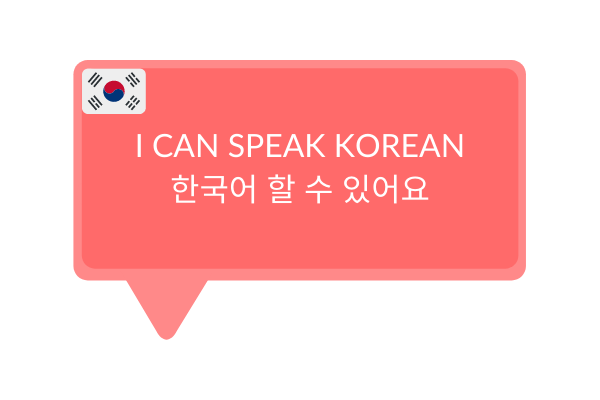
Everyone in Korea studies English from elementary school to university. This doesn’t mean they can all speak the language, but they’re familiar with the grammar and vocabulary.
Some jobs may require you to speak Korean, but there are plenty of others that don’t. You won’t need to speak Korean to teach English at a private academy. In fact, it’s often discouraged since students are there to converse with native English speakers.
Basic Korean words and phrases you need to know
It’s extremely helpful to be able to read and converse at a basic level if you plan to stay for a long period of time. I was able to get some of my best jobs by speaking Korean.
Being fluent in Korean earns a lot of respect from locals, since you took the time and made the effort to learn.
Also, in the office environment, there will be some employees who are more comfortable speaking Korean. Being able to do so will make life a lot easier for everyone.
A TOPIK score might be necessary for jobs that require proficiency in the Korean language. But even so, many people will prefer to speak English, since it’s free practice and private lessons are expensive in Korea.

What are the most popular jobs in South Korea?
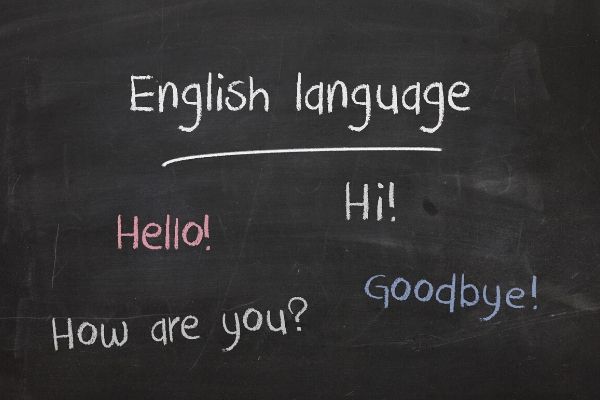
English teacher at a private academy (학원 or hagwon) is the most popular job for non-Koreans who don’t want to work at a factory. All you need is a Bachelor’s Degree and a criminal background check.
There’s a strong love/hate relationship with this kind of job in the expat community.
Pros:
- They’re pretty easy to get
- There are plenty of them
- They pay relatively well
Cons:
- They can be stressful
- They’re usually dead end since there’s not many future prospects besides managing other teachers
- They leave you at the mercy of the owner (원장, wonjang). This is because your visa is sponsored by them, and
you’re unable to change jobs mid-contract unless they release you.
So, if you’re unlucky and land a job at a less than reputable place, you’ll be stuck there for a year or forced to go back home until your contract expires. Then you can apply for another job.
***Update 2023***
It was confirmed by a recent phone call that you simply need to leave the country and can reapply immediately overseas. It’s unclear when this changed or if this was always the case. It helps to check since Korean immigration laws are unclear.
***
Always make sure to screen potential academies on Dave’s ESL Cafe or Reddit. Just type in the name of the hagwon you plan to work at in the forum and see if anything turns up.
What other types of English teaching jobs are there besides hagwons?

After-school programs
There are after school programs that run from 1 p.m. to 6 p.m. These are sponsored by the government and generally have better working conditions than hagwons.
Phone English
You can also teach phone English now, although the hourly rate can be relatively low. The pay ranges from $10 to $40 per hour depending on whether you’re willing to do video calls and your level of experience.
But what you give up in income, you gain in the ability to work in your pajamas.
University jobs
The Holy Grail of teaching jobs in Korea. Anyone who teaches English secretly wishes they could get one. It has probably the lowest number of teaching hours per week and the highest number of vacation days, up to four months. In most cases, you don’t actually need a Master’s or Ph.D, although it can help.
How do I get a university job in Korea?
These jobs are very competitive as you can imagine. In Korea, having a good relationship can sometimes be more important than your qualifications. The best way to get one of these is to network and have a good reputation.
Try taking a cooking class, joining a dance or book club. Check out Meetup.com for a “Speed Networking” event.
How do I apply for an office job in Korea?

For a country with skyscrapers and ultra-modern apartments, Korea can be old-fashioned sometimes. They still prefer to do business face to face, so you’ll get better results being there in person.
In your home country
If you’re in your home country, it’s still possible to get a job, it’s just harder. There are English teaching positions that you can find online to get your foot in the door.
In Korea
Once you’re in Korea, you can network and apply for jobs in person. This will give you a much higher chance of getting the position you really want, since a lot of the good ones go to referrals.
You also have more credibility, because you’ve already shown you can adapt to the local culture.
One way to make getting a job in Korea easier is to graduate from a Korean university. This will give you priority with immigration and let you apply for a wider range of positions.
I’ve had many friends who graduated from Yonsei with a Master’s Degree that were able to get jobs outside their field.
Newspapers
Newspapers can be a surprisingly good source for jobs in Korea. You can even find work as a freelance writer and journalist. Here are a few of the larger and more reputable newspapers:
Job fairs
Jobs are serious business in Korea and there’s a whole industry devoted to helping you find one. There are annual job fairs just for foreigners. Here are the two main types:
- 2019 외국인 취업박람회 For students
- 외국인 취업박람회 For residents
These job fairs may be targeting foreigners, but they operate very much in the Korean way. Make sure to bring copies of your CV and cover letter in both English and Korean.
Also, it’s a good idea to maintain Korean business etiquette while you’re there.
General requirements to work in South Korea
University degree
Having a bachelor’s degree isn’t necessary, but it’s a good idea. There are positions you can get with a high school education, but they’re generally sales or server jobs with less-than-ideal working conditions.
I’ve met people who have done this and opened their own restaurants or other businesses. It’s just a much tougher road to travel.
Clean criminal record
Most companies require an apostilled criminal background check from your local intelligence agency. Here are some of the main organizations that provide them based on your citizenship.
- US citizens: FBI
- Canadian citizens: RCMP
- Irish citizens: Ireland’s National Police Service
- Australian citizens: Australian Federal Police
- New Zealand citizens: Ministry of Justice
- UK citizens: Disclosure Scotland
- South African citizens: SAPC
Health screening
Like registering at your local immigration office, this must be completed within 3 months of arriving in Korea. It covers 21 items including interview, chest radiography examination, blood test, and urinalysis.
Tests must be completed at government-approved hospitals. You can ask your handler for help finding one nearby.
Cannabis is very illegal, so make sure it doesn’t show up on your test. Also, pain pills are known to register false positives, so it’s a good idea to avoid taking anything the week of the test.
A positive drug test terminates your employment contract.
For the medical exam you’ll need:
- 2-5 passport-sized photos
- A valid Passport
- 70,000~130,000 KRW (1,000 – 5,000 KRW for additional copies of check-up results)
- To fast for at least 8 hours before the tests
- An appointment depending on the hospital
Other requirements to work in South Korea
These aren’t mandatory, but will increase your chances of finding work in Korea.
Professional look
Appearances are very important in Korea. This doesn’t mean you have to look like a model, but you should present yourself well. Dressing for success and proper grooming will make your job search a lot easier.
Also, a professional profile picture won’t hurt since Korean job applications require one.
TOPIK Score
You can take a TOPIK language proficiency test, which evaluates communication skills for non-native Korean speakers. This isn’t always necessary, but it’s a good motivator to learn the language.
Korean language ability
This varies based on the position you’re after. For English teaching jobs, you don’t need to speak a word of Korean. But, these jobs are easy to get for a reason and are very hit or miss.
I could barely read and say hello when I first arrived in Korea. As you can imagine, it was a challenging few months and I got serious about learning quickly. The more you know before you go, the easier it will be.
It may be hard to get motivated in your home country so try joining a language study group or enjoying Korean media.
Korean CV
Koreans have their own way of doing things. This is especially evident in the way they format their resumes. Here’s an example:
입사지원서
Resume
기본사항
Basic Info
| 성명 Name | 생년월일 Date of Birth | 사진 (3*4) Photo | ||
| 전화번호 Phone Number | 핸드폰 Mobile Phone Number | |||
| 주소 Address |
학력사항
Education
| 입학 Admission | 졸업 Graduation | 학교명 School Name | 학과명 Dept. Name | 구분 Category | 소재지 Location | 성적 Grade | |
| 고등학교 Highschool | 졸업 Graduated | 평점 GPA | 석차 Rank | ||||
| 대학교 University | 졸업, 편입 Graduated, Transferred | ||||||
| 대학교 University | 졸업, 편입 Graduated, Transferred | ||||||
| 대학원 Grad School | 졸업 Graduated |
경력사항
Career
| 구분 Category | 기간 Period | 회사명 Company Name | 부서 Department | 직위 Position | 직무 Duty |
| 직장 Company | 년 월~ 년 월 ( 년 개월) YYMM – YYMM ( year months) | ||||
| 인턴/연수 사회봉사 Intern/Training Volunteer | 년 월~ 년 월 ( 년 개월) YYMM – YYMM ( year months) | (기관명 및 활동개요) (Organization Name and Activity Summary) |
기능사항
Other Skills
| O‧A 활용가능 패키지 MS Office | 외국어 Language | ||
| 영어 English | 상중하 Advanced, Intermediate, Beginner | TOEIC 점/TOEFL 점 TOEIC score/TOEFL score | |
| 일어 Japanese | 상중하 Advanced, Intermediate, Beginner | TEST 명 : 점 / 만점 TEST Name: Score | |
| 중국어 Chinese | 상중하 Advanced, Intermediate, Beginner | TEST 명 : 점 / 만점 TEST Name: Score | |
| 기타 Others | 상중하 Advanced, Intermediate, Beginner | TEST 명 : 점 / 만점 TEST Name: Score |
Korean Cover letter
Cover letters are also a bit different in Korea. They’re known as “self-introductions (자기소개서 | 자소서 in short)” and focus on where you’re from, your parents, and their occupations.
I’ve spent many hours converting cover letters into self-introductions and vice versa for expats and Koreans. They’re gradually falling out of favor, but still be prepared to write one.
Some Koreans even call them “자소설”, which means self-fiction, not self-introductions.
자기소개서
Self-introduction
성장과정
Growth Process / Family Background
| 제목: Title: |
성격 및 장단점
Personality & Strengths and Weaknesses
| 제목: Title: |
지원동기
Reason for Application / Motive
| 제목: Title: |
입사 후 포부
Aspirations after Joining the Company / Long-term Goal
| 제목: Title: |
Job application process in Korea
Getting a job in Korea can be a bit more standardized than in other countries.
Most job posts you encounter will look something like this:
- 지원 자격
- 모집인원 : 0명
- 전형 방법 : 서류전형 – 인적성 검사 – 면접 전형 – 신체검사
- 지원서 접수
가. 접수기간 : 00 ~ 00
나. 접수방법 : 온라인 지원서 작성
- Qualifications
- Positions Available: 0 indicates less than 10 positions
- Recruitment Process: Document Screening – Aptitude Test – Interview – Physical Examination
- Resume Submission
a. Submission Period:
b. Submission Method: Online
As you can see, there are a few notable differences. Aptitude tests and physical examinations aren’t always a given outside of Korea.
Aptitude test
Koreans love their tests, and you can expect to take one if you want a job. These tests vary by company, and usually consist of a math and personality test.
Samsung usually sets the trend of which ones are administered. They take these tests seriously, and they can determine the department where you’ll be working, especially if you just graduated university.
If you want to increase your chances, there are even books you can practice with.
Interviews
Getting a job in Korea can be very competitive, so there are often multiple rounds of interviews.
1st round
This will usually be a group affair. The format can vary from each person being asked the same or different questions to a group project. Make sure to be humble and modest while still being confident. This includes bowing to the interviewers when you enter the room.
Korean office environments value loyalty and team players as much as individual ability.
Never interrupt someone who’s speaking as this will be viewed as aggressive and undesirable.
Be sure to show that you’re interested in the company, even when you’re not.
As with every interview environment around the world, assume you’re being watched as soon as you enter the building. This means treating everyone from the front desk receptionist to cleaning staff with respect and deference.
Also, make sure to relax. There’s a special category of supplements Korean take to lower anxiety called, 우황청심환.
2nd round
If you made it this far, your chances are pretty good. The interview will most likely be attended by one or two senior managers in addition to HR personnel.
You’ll be more familiar with this format of interview as they ask you standard questions. One thing to note is you’ll most likely be asked to give your self-introduction, which by now should be second nature to you.
3rd round
For larger companies or more important positions, you might have to come back for a third interview. This is often with high-level management or even the CEO.
It’s most likely a formality and a chance for them to get to know who they’re hiring. You can expect similar questions along with some interesting personal ones as well.
Physical
One needs a lot of fortitude to survive in a Korean office environment. The physical is designed to determine if you have what it takes. Most of the time, they check things like blood pressure and general health.
What are the requirements for a corporate job in South Korea?
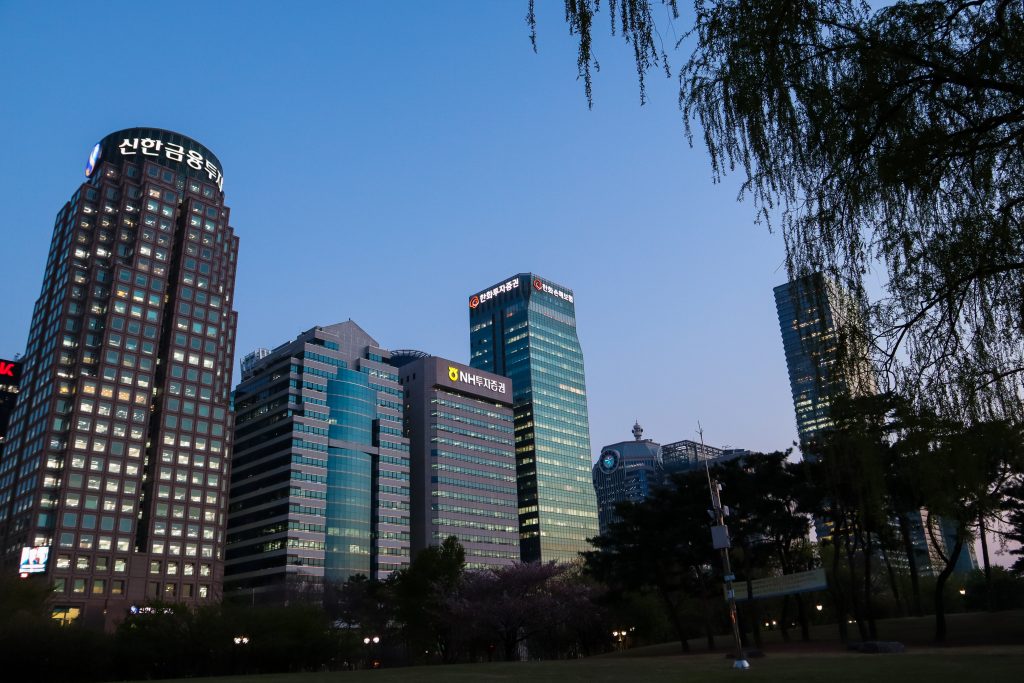
There are ways to work in other fields besides those mentioned above. This really depends on your field of expertise and employer.
You generally need to satisfy of the following requirements to get a work Visa sponsored by a company in South Korea:
1. A Master’s Degree relevant to the job you’re applying to
2. A Bachelor’s Degree and 1+ years of experience relevant to the job you’re applying to
3. 5+ years of experience relevant to the job you’re applying to
It helps if you have experience in a high-demand field like IT.
Where do Koreans find jobs?

The top employment website in Korea.
It has been ranked 1st in number of visitors for 10 consecutive years.
Since its foundation in 1996, it provides employment information, including full-time, part-time jobs and headhunters.
A fast-growing website.
It contains employment information, including open recruitment at the top 1,000 corporations, SMEs, SOEs, etc.
It’s the largest platform for open recruitment in Korea.
With a well-organized interface, information can be viewed by job type, industry and region.
A website operated by the Ministry of Employment and Labor, and Korea Employment Information Service.
So, you know the info is reliable.
It offers customized employment information for young adults, women and middle-aged people.
You can also apply for unemployment benefits on this website.
Founded in 1996, it has recorded 2 million visitors, and operates a platform in Korea and overseas.
Incruit provides education on how to write resumes and prepare for an interview.
Since news is exchanged quickly here, you can find the latest information.
Wanted is another up-and-coming site where Koreans can find jobs.
Peoplenjob is a simple site with a variety of job opportunities.
What it’s like to work in South Korea

I worked in Seoul and Gyeonggi-do for 10 years, and started a business I’ve been running since 2013. I only had to apply for one job during that period (I’ve spent more time helping others find work). It was actually a position I found on monster.com in 2006, before leaving the states.
Even though I didn’t have much work experience, there were many options.
I found the best opportunities through networking.
While living in Korea, I found work as an actor, model, marketer, salesperson, lecturer, and interviewer. I gave private English lessons to celebrities, CEOs, and high-ranking government officials. I even worked at a Stewardess Academy, a concept that doesn’t exist in most countries.
More about Working in Korea as an Expat
Working in Korea provided me with a wealth of experience and a new perspective. I also learned the language and traveled all over the region.
It even helped me start a business and a blog, which I wouldn’t have done back home.
More about Starting a Business in Korea as an Expat
I highly recommend it for recent college graduates or anyone looking to make a change in their life.

FAQ
How much is the average salary in Korea for expats?
Data on average salaries for non-Koreans are hard to come by. Salaries for office workers depend on skill level and negotiation.
The average English teacher salary at a private institute is 2 million KRW ($1,800) a month plus housing and insurance.
How much is the average salary in Korea?

As of 2020, the minimum wage is 8,590KRW per hour.
According to Statistics Korea, the average monthly income of wage workers in 2018 was 2.97 million KRW, and the median income was 2.2 million KRW.
The average monthly income by organization type was 3.26 million KRW for corporations, 3.28 million KRW for non-business corporations, 3.30 million KRW for government and non-corporate organizations, and 1.67 million KRW for individual companies.
The average monthly income of large corporations was 5.01 million KRW, that of SMEs was 2.31 million KRW, and for non-profit enterprises, it was 3.27 million KRW.
How many expats work and study in Korea?
2.07 million foreigners live in Korea and around 1.4 million have registered jobs.
In 2019, there were 60,700 foreign students enrolled in undergraduate programs.
45,000 non-Koreans were enrolled in language programs.
There are an estimated 24,000 English teachers. Many foreigners are also employed as office and factory workers, although accurate numbers are hard to come by.
What are the entry rules for E type visas in Korea?
Single-entry, double-entry and multiple-entry visas are available for expats on an E Visa in South Korea. You need to tell the consulate or embassy, or your employer which one you prefer.
What are some non-teaching jobs in Korea for foreigners?
The number of non-teaching opportunities is increasing in Korea. You can work in any field besides medicine or law, which requires Korean qualifications. Here are jobs I’ve personally done or seen other expats doing:
- Translator
- Model
- Actor
- Server
- Bartender
- Journalist
- Musician
- Writer
- Salesperson
- Contractor
- Programmer
- Startup founder
Another avenue is internship programs. Korean companies hire interns year-round, but be prepared to work long hours.
You can also join the Army, and request to be stationed in Korea, but there’s no guarantee.
How easy is it for foreigners to get non-teaching jobs in Korea?
It can be relatively easy since there are non-teaching jobs advertised online.
The catch is that many are entry-level positions in sales or hospitality, which can be quite stressful.
The best way to get better non-teaching jobs is to learn the language at a conversational level (you don’t need to be fluent) and network in the country.
Did we miss anything?
Working in Korea can be a life-changing experience.
It’s not for everyone, but you won’t know until you try.
Let us know your experience in the comments!
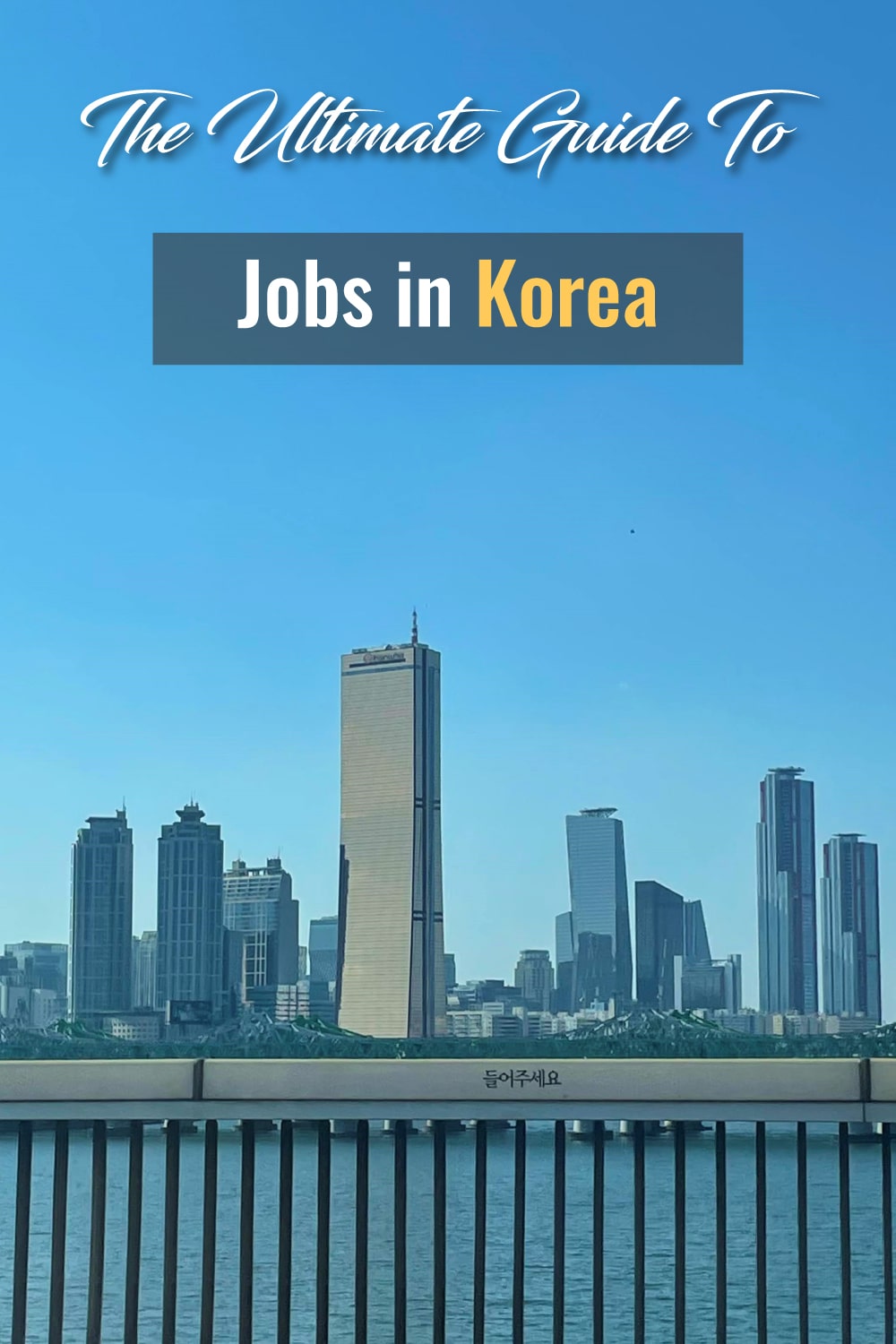




Hello! I just ran into this article while researching jobs in Korea and saw that you’re responsive to people requesting more information. I’m very interested in working and living in Korea long term but have questions. Would you mind if we emailed to discuss further?
Thank you!
Hi Alaina,
Sure, I’ll email you.
You’re cute! Are you still single?
Hi Jocelyn,
Thanks!
I’m not single, but thanks for asking!
Hello, I’ve been researching options for working/living in South korea and came across your blog. If I wanted to find work in a non-teaching job such as a server or sales and do not have a degree, is it still possible to obtain a working visa? If so, which one is best suited? Alternatively, if I wanted to teach English online and “live” in South korea, is that possible? Thank you for all the information and I appreciate your response.
Hello KM,
It’s very hard to get a work visa without a four-year degree, unless you marry a Korean (F-6) or have a Korean parent (F-4).
Those are two ways you can stay in Korea and do any kind of job you’d like, including teaching online. I hope this helps!
Hi,
I m about to finish my msc in computer science… and I like to work in Korea .
1.But I don’t know korean language
And I don’t find any entry level jobs in the website
But actually I like to work for kbeauty related jobs is it possible
And one more
2. Or if I like to learn Korean from beginning but wanted to in Korea …is it possible … will they teach it from start
3.I love travelling a lot so can I get job like that in Korea
Travel there …and get paid
But I would like to Korea after I finish my masters and work for someday in my native country… willl you guide in that questions..
thank you for the post it is actually encouraging one other than any post 😊
Please I don’t know anyone there so can you send me if any jobs available also
Hi Lindsay,
Those are good questions.
1. That could be a problem. Koreans understand English, but use Korean in the workplace. There are many startups that speak English though. It might be a good idea to network a bit and start making a portfolio to show employers.
2. Yes, there are many beginner courses you can take in Korea. You can get started with Pimsleur to see if you enjoy learning the language.
3. You’ll probably be able to work remotely if you get a job in web development.
I’m so glad to hear that! I will keep an eye out for jobs in your field.
Thank you so much for your answer 😊 will wait for your help
Another one
Is there any opportunity for the love of skin care influencer
I know I’m took computer science but my passion is more on kbeauty … so do you know about it
Hi Lindsay, that’s not really my specialty. I’d imagine that you’d use a different platform such as Instagram or YouTube to feature products. I’d still make a blog though, because social media platforms change their algorithms often, which can cripple your income.
To study the beginner Korean language courses in Korea … which university offers it and how much it cost ?
And as tourist can I visit and apply for the studies in Korean language there during tourist visa .. and later I will come back to study .. is that possible
The big ones all offer courses such as Sogang, Yonsei and Seoul University. Their costs vary and are in the 1,300 to 1,600 dollar per semester range. You’d need a D-4 student visa for those courses though. You can always try online study first to see if you enjoy learning the language.
Hi! First I’d like to thank you for a very informative post! It’s so helpful!
I have a question about the notice on paid internships (You’re saying it changed during the Moon rule). Does that apply to foreigners as well? I can’t seem to find any English information on this. I’ve had contact with a few companies that arrange internships in Asia and they say that most of their internships are unpaid.
thank you for your patience and kind regards
// Erika
Hi Erika,
You’re very welcome!
The rules should apply to foreigners, but enforcing them is another matter.
What matters is the purpose of the internship whether an intern is to receive training vs. actually work/perform labor.
Basically, if you’re working but unpaid, that’s against the Labor Standards Act.
In this case, you’re supposed to get at least the minimum wage by law (some Korean companies have a clause about 10% deduction of salary during internship period on the contract).
The gray area could be that they list the internship under training purposes.
I hope you find what you’re looking for.
I want to come in South Korea in also study in I have complete in our intermediate pass in medical and I also want to learn the language and get a job there
Hi Wahab,
You can apply to universities in Korea, but you’ll need to graduate from a one approved by the Korean Ministry of Health and Welfare to practice medicine.
This is a great article and has helped me a lot. I’m looking to start my life over at 40. I have 8 years experience as a pre-school teacher but that degree is different than a bachelors in English. I wouldn’t mind teaching again and working as a teacher in the country. I’m scared to make this big move based upon my age. I plan on visiting and staying up to three months in the country to see if it actually works for me. Any advice for someone brand new to the country and the culture? Making friends and networking? Do expats mainly stick with each other? I’m an American and female. I’m used to being open especially with people I have just met and worried I might be “ too much” for folks in this beautiful country. I’ve already taken that first step and started learning the language. Anything you can share to ease my worries? What first steps should I make?
Hi Nikki,
You know what they say, life begins at 40 now:) The fact that you’re asking these questions tells me you’ll be fine.
Also, your plan to check out Korea for 3 months before getting a job is a great idea! That being said, the city, neighborhood and job you choose will make a huge difference.
Aside from Seoul, I’d recommend checking out Busan and Gwangju as well to see if they’re more your pace. Having teaching experience is a huge advantage over most expats, even if it isn’t in English education. Look for after school programs as they tend to have better hours, working conditions and hire females.
Making friends in Seoul is probably the easiest because they’ll have a variety of social groups for both locals and expats you can join (meetup.com and Facebook groups are great for this). But, you can find people you’ll get along with all over the country, and being open can be a refreshing change for some.
Expats mainly stick together in my experience, but there are many locals who are open to meeting people from other countries. No reason you can’t hang out with both!
You’re taking the right steps, so I feel confident that you’ll figure it out.
Hello I completed my diploma + bachelor degree in civil engineering but I have no experience yet so I try to apply in some companies but there is some problems I am facing first what the difference between university and college and diploma in Korea, second company have there own resume filling form and it’s difficult to fill them in computer because I don’t have Hangul in my excel and the form doesn’t open then what I do ? Thankyou
Hello Geetika,
1. Koreans usually mean “University” for 4-year bachelor’s degree, and “College” for 2-year community college. In your case, I believe it’s better to go with university.
2. Many Korean companies and governments use Hangul like you said. You should be able to open a HWP file using GoogleDrive, OpenOffice.org or LibreOffice.
Best of luck!
Hi, I’m a Malaysian with a Engineering Bachelor’s Degree but I’m looking for a media related job (video editing) in Seoul. Is it possible? Any tips for this? And may I have the CV and Cover Letter template please? It will be very helpful. Thank you!
Hi Jason,
Yes, having a bachelor’s degree helps and making a video editing portfolio will be a good idea.
Media related jobs are usually labor intensive with lower pay than you might expect, but try to apply for some positions. There is a CV and Self-introduction template in this post.
Best of luck!
Guten Tag mein Name ist Diana ich wohne in Deutschland und möchte nach korea ziehen und dort wohnen… Welche Möglichkeiten habe ich.. Ich habe nur ein einfachen Hauptschule Abschluss…
Hi Diana,
Thanks for writing. Perhaps this article can help?
I want to work in Korea, I need an E7-4 visa